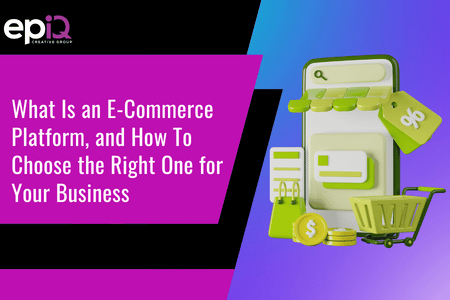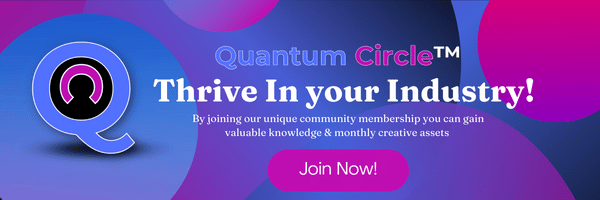What Is an E-Commerce Platform, and How To Choose the Right One for Your Business
An e-commerce platform is a software application that enables online shopping, either as a stand-alone application or as part of an integrated system. An e-commerce platform may provide various features such as product catalog management, shopping cart functionality, order management, and payment processing.
E-commerce platforms are typically offered as either licensed software that businesses install on their servers or as hosted services that provide the software and manage the infrastructure for businesses. Hosted e-commerce platforms are often referred to as “cloud-based” e-commerce platforms.
In this article, you will learn the following:
- What an e-commerce platform is
- The types of platforms
- Why you need a platform
- How to choose the best e-commerce platform for your business
We’ll also include a list of the popular e-commerce platforms businesses currently use that we think you should consider.
So, are you ready to take your business online? Stick around to find out everything you need to know about e-commerce platforms.
What Is an E-Commerce Platform?
An e-commerce platform is a software solution that enables businesses to create an online store and sell their products and services. It provides a web-based interface for businesses to manage inventory, process orders, and track customer data. E-commerce platforms typically include features such as shopping carts, payment processing, shipping, and returns management.
There are many different types of e-commerce platforms available, ranging from simple DIY solutions to complex enterprise-level systems. The right platform for your business will depend on several factors, including the size and type of your business, your budget, and your technical expertise, which we will get into in more detail later.
Essentially, an e-commerce platform is the foundation of your online store. It provides the structure and functionality needed to run your business, from processing payments to managing shipping and inventory. This foundation is crucial because it lets you focus on other aspects of your business, such as marketing and product development.
Types of E-Commerce Platforms
There are four main types of e-commerce platforms:
Open-Source
An open-source e-commerce platform is software that you can use to create your online store. It’s free to use, but you might need to hire someone to help you set it up. It includes features like shopping carts, payment processing, and order tracking.
The main advantage of using an open-source platform is that it’s very flexible, and you have full control over the code. This means you can customize the platform to meet your specific needs. However, open-source platforms can be challenging to set up and maintain, and you will need a team of developers to manage the platform for you.
Examples of open-source e-commerce platforms include Magento, PrestaShop, and WooCommerce.
Hosted
Hosted e-commerce platforms provide the software for your business and manage the infrastructure. You don’t have to worry about setting up a server or maintaining the website. These platforms are often called “cloud-based” e-commerce platforms because they are hosted on the internet.
The main advantage of using a hosted platform is that it’s straightforward to set up and use. You don’t need any technical expertise, and most platforms come with built-in features like shopping carts, payment processing, and order tracking. Additionally, hosted platforms are often more affordable than self-hosted platforms.
A small drawback of this type of platform is that you don’t have full control over the code, which means you can’t customize the platform to meet your specific needs. Also, if the platform goes down, you have to wait for the hosting company to fix the problem, which can take some time.
Some popular hosted e-commerce platforms include Shopify, BigCommerce, and Volusion.
Licensed
A licensed e-commerce platform is a platform you purchase and then use to create your online store. It includes features like shopping carts, payment processing, and order tracking.
The main advantage of using a licensed platform is full control over the code. This means you can customize the platform to meet your specific needs. Additionally, licensed platforms are often more affordable than hosted or open-source platforms.
A disadvantage of this platform is that you need to manage the website and server yourself. This can be difficult for inexperienced users, and keeping the platform up-to-date with the latest security updates and features can be time-consuming.
Some popular licensed e-commerce platforms include Adobe Commerce Cloud, IBM WebSphere Commerce, and Oracle Commerce Cloud.
PaaS
PaaS, or Platform as a Service, is a newer type of e-commerce platform that’s growing in popularity. It provides your business’s software and manages the infrastructure like a hosted platform. However, you have full control over the code, which means you can customize the platform to meet your specific needs.
PaaS platforms are often more affordable than hosted or open-source platforms, and they are easier to set up and use than licensed platforms. Additionally, PaaS platforms are often more scalable than other types of platforms, which means they can grow with your business.
However, a downside of PaaS platforms is that they can be more difficult to maintain than hosted or open-source platforms. Additionally, they can be less flexible than other types of platforms.
Some popular PaaS e-commerce platforms include Shopify Plus and BigCommerce Enterprise
Reasons Why You Should Use an E-Commerce Platform for Your Business
You should use an e-commerce platform for your business for many reasons. Here are some of the most important benefits:
- Allows you to focus on your business: When you use an e-commerce platform, you can focus on running your business because the platform will take care of the website for you. This includes hosting the website, maintaining it, and keeping it secure.
- More affordable than building a website from scratch: Building an e-commerce website from scratch can be very expensive. You need to pay for hosting, a domain name, SSL certificate, design, development, and more. On the other hand, using an e-commerce platform is much more affordable because you only need to pay for the platform itself.
- Scalable: E-commerce platforms are very scalable, which means they can grow with your business. As your business expands, you can add more products, users, and features to your website without problems.
- Easy to use: Most e-commerce platforms are very easy to use, even for beginners. This means you can set up and manage your website without technical knowledge.
- Features: E-commerce platforms have many features that can help you run your business. These features include shopping carts, payment processing, order tracking, customer management, shipping, and more.
- Security: E-commerce platforms are very secure, which is vital for businesses that accept online payments. The platform will provide you with an SSL certificate and other security features to protect your website from hackers.
How To Choose the Right E-Commerce Platform
It can be difficult to select the right e-commerce platform for your business. This is because there are so many available types, each offering different features and benefits. To make things even more complicated, new e-commerce platforms are constantly being released, making it hard to keep up with the latest trends.
When choosing an e-commerce platform, it is important to consider your unique needs and requirements. What type of products do you sell? How large is your inventory? Do you need a platform that can handle digital downloads or physical goods? How much control do you want over the look and feel of your store?
Once you have a good idea of what you need, you can start narrowing down your options. To help you get started, we’ve compiled a list of the most popular e-commerce platforms, along with their key features and benefits.
Shopify
Shopify is one of the most popular e-commerce platforms on the market. It is suitable for businesses of all sizes, from small to enterprise-level businesses. Shopify offers a wide range of features, including a user-friendly interface, an integrated payment gateway, and support for multiple languages and currencies.
BigCommerce
BigCommerce is another popular e-commerce platform. It is suitable for businesses of all sizes, from small to enterprise-level businesses. BigCommerce offers a wide range of features, including a user-friendly interface, an integrated payment gateway, and support for multiple languages and currencies.
WooCommerce
WooCommerce is a popular e-commerce platform that is built on top of WordPress. It is suitable for businesses of all sizes, from small to enterprise-level businesses. WooCommerce offers a wide range of features, including a user-friendly interface, an integrated payment gateway, and support for multiple languages and currencies.
3dcart
3dcart is suitable for businesses of all sizes, from small to enterprise-level businesses. It offers many features, including a user-friendly interface, an integrated payment gateway, and support for multiple languages and currencies.
Conclusion
Having an e-commerce platform is beneficial for your business because it allows you to manage and run your website without any technical knowledge.
Additionally, e-commerce platforms provide a wide range of features that can help you run your business more efficiently, including shopping carts, payment processing, order tracking, customer management, shipping, and more.
Furthermore, e-commerce platforms are very secure, which is vital for businesses that accept online payments. Finally, when choosing an e-commerce platform, it is important to consider your unique needs and requirements to find the best platform for your business. With so many options available on the market today, doing your research is essential in making the right decision for your company.
Sources
https://business.adobe.com/blog/basics/ecommerce-platforms
https://theecommmanager.com/what-is-ecommerce-platform/
https://www.netsuite.com/portal/resource/articles/ecommerce/what-is-an-ecommerce-platform.shtml
https://www.shopify.com/blog/best-ecommerce-platforms
https://www.ecommerceceo.com/ecommerce-platforms/
https://www.bigcommerce.com/articles/ecommerce/ecommerce-platforms/
https://www.forbes.com/advisor/business/software/best-ecommerce-platform/
https://www.builderfly.com/what-are-the-types-of-e-commerce-platforms/
Who is epIQ?
epIQ Creative Group is a digital marketing agency that specializes in accelerating sales and scaling revenue for businesses. With over a decade of experience, epIQ's expert team ensures your investment yields a substantial return, eliminating guesswork and saving you thousands through data-driven strategies. Our services encompass brand messaging, paid media advertising, inbound marketing, and creative content creation.
epIQ's proprietary systems have a proven track record, with clients experiencing 2x to 5x growth within 90 days. We are transparent and agile, providing you with progress reports, and direct access to growth marketers.
What sets epIQ apart is our flexibility and cost-effectiveness. We offer month-to-month contracts, a-la-carte services, and our team's expertise comes at a fraction of the cost of hiring in-house.
epIQ Creative Group is not just another digital marketing agency; we are a partner committed to your success. Our innovative approach, dedication, and transparency guarantee not just growth, but unparalleled success for your business.



